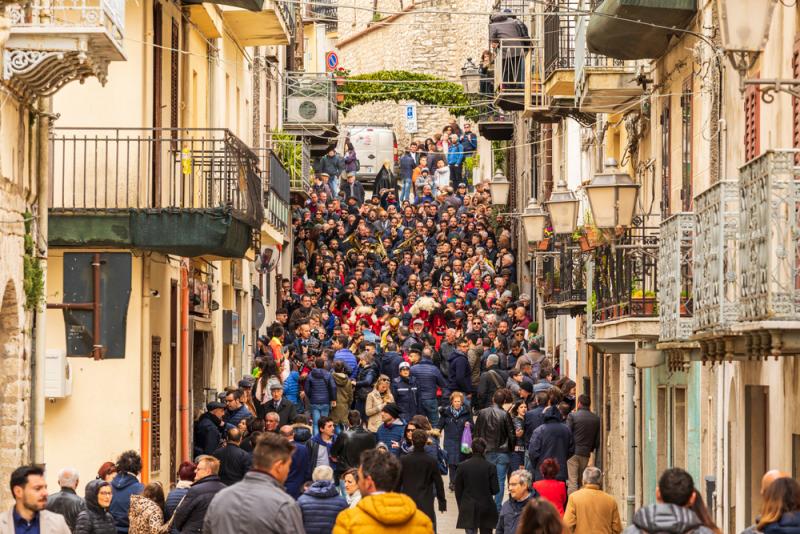Easter is a major celebration in Italy, marked by regional and national traditions and wonderful food all over the country. As an important time on the Christian calendar, it brings many religious ceremonies, events and processions, as well as more cultural happenings.
The buildup to Easter begins with Domenica delle Palme (Palm Sunday), followed by Giovedì santo and Venerdì santo (Maundy Thursday and Good Friday). The celebrations culminate on Pasqua (Easter Sunday) and after that comes Pasquetta (Easter Monday). The whole week is known as La settimana santa (Holy Week). Liturgically, the official Easter season then continues for 50 days up until Pentecost Sunday, though culturally and commercially, it ends after Pasquetta (the supermarkets will have colomba cakes and chocolate eggs slashed half-price as soon as they reopen, for example).
Below are some Easter-related expressions and idioms in Italian for you to use when navigating this season.
Natale con i tuoi, Pasqua con chi vuoi
This charming mini-rhyme means that you should spend Christmas with your family, but you can spend Easter with whoever you’d like to. This is particularly true of Pasquetta (Easter Monday), a day traditionally spent in nature having a picnic, or enjoying a barbecue with friends.
It does all depend on the weather, though. Easter can fall in March or April, so it can be very early or very late spring. There are some Italian expressions to talk about when Easter falls:
Pasqua bassa
Literally “short Easter” — if Easter falls between March 22 and April 2.
Pasqua media
Literally “medium Easter” — if Easter falls between April 3 and April 13.
Pasqua alta
Literally “tall Easter” — if Easter falls between April 14 and April 25.
Felice come una Pasqua
This literally means “as happy as Easter.” The English equivalent might be “as happy as Larry” in the UK or “happy as a clam’ in North America.
Lungo come la Quaresima
Quaresima is the Italian word for Lent — the 40 days in the run up to Easter, often filled with prayers and fasting. The literal translation of this saying is “as long as Lent.” It is used to describe someone or something that is long, drawn out and really quite boring.
Portare la propria croce
This means “to carry one’s own cross.” It refers to someone dealing with hardship and pain, in the same way Jesus carried his own cross.
Essere come San Tommaso
Thomas the Apostle, also known as doubting Thomas, didn’t believe the story of Jesus’ resurrection when he was first told of it. This expression means “to be like Thomas the Apostle” and is used to describe someone who won’t believe something unless they see it with their own eyes.
Buona Pasqua!
Happy Easter to all those celebrating!









